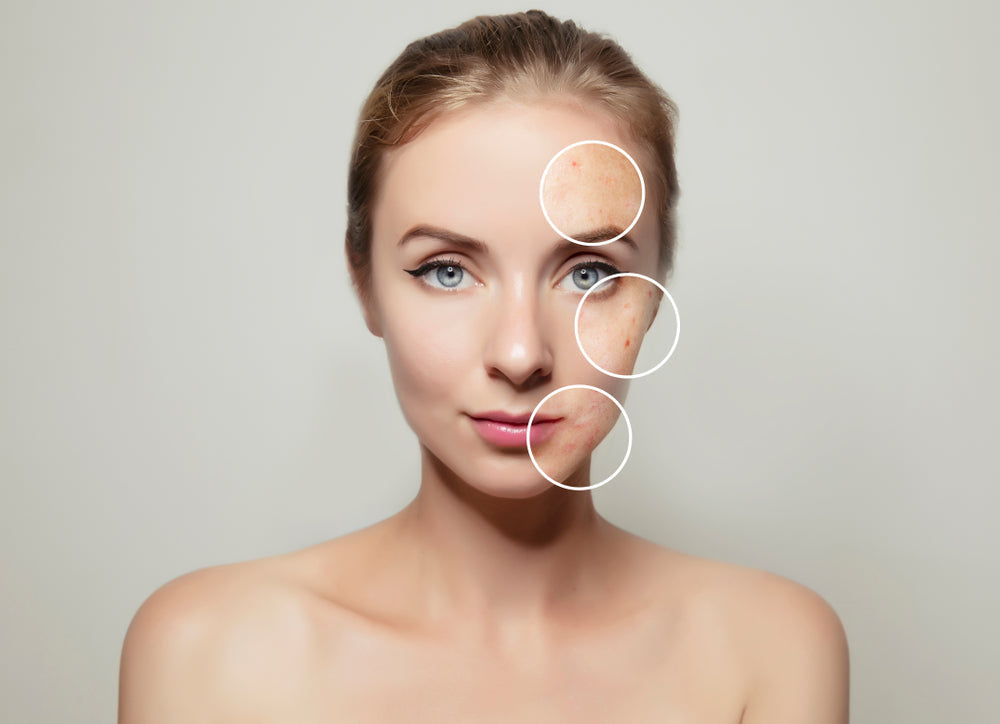Does your skin feel tight, itchy, or rough? You're not alone. Dry skin affects millions worldwide, whether from harsh winter conditions, frequent washing, aging, or medical conditions. Skin struggling to maintain adequate moisture can become uncomfortable and even painful. The good news? Several effective ways exist to restore and keep your skin's natural moisture balance.
Understanding Your Skin's Moisture Balance
Our skin is a remarkable living barrier, constantly adapting to its environment. The outermost layer, called the stratum corneum, acts like a sophisticated moisture regulation system. This delicate barrier consists of corneocytes (dead skin cells) arranged like bricks, held together by lipids (natural fats) that act as mortar. This structure is crucial for maintaining optimal hydration and protecting deeper skin layers.
Environmental Impact on Skin Hydration
When you step outside on a dry winter morning or into an air-conditioned room, your skin immediately responds to ambient humidity. The stratum corneum contains Natural Moisturizing Factors (NMFs) - a complex compound mixture that attracts and holds water. In low-humidity environments, these NMFs struggle to pull sufficient moisture from the air, leading to:
- Reduced skin elasticity
- Microscopic cracks in the skin barrier
- Increased water loss through the skin (transepidermal water loss)
- Compromised barrier function
Beyond Weather: Hidden Moisture Thieves
While environmental conditions play a significant role, several daily habits and practices can significantly impact your skin's moisture balance:
Water Temperature and Exposure
Hot showers and baths might feel luxurious, but they can dissolve and wash away your skin's natural lipid barrier. Water temperatures above 105°F (40.5°C) start to break down the proteins that keep your skin healthy, leading to moisture loss and irritation.
Cleansing Habits
Many commercial soaps and cleansers contain harsh surfactants that can:
- Strip away protective oils
- Disrupt the skin's natural pH balance (ideally around 5.5)
- Remove beneficial bacteria that help maintain skin health
- Create micro-damage to the skin barrier
Indoor Climate Control
Modern heating and cooling systems can create artificially dry environments that continuously draw moisture from your skin. This effect is particularly pronounced during:
- Winter months with indoor heating
- Summer months with air conditioning
- Long flights in climate-controlled cabins
Chemical Exposure
Regular exposure to certain substances can compromise your skin's moisture barrier:
- Chlorinated pool water
- Hard water with high mineral content
- Alcohol-based products
- Harsh exfoliants
- Dehydrating skincare ingredients
Lifestyle Factors
Several daily choices can impact skin hydration:
- Caffeine consumption
- Alcohol intake
- Insufficient water consumption
- Poor dietary decisions lacking essential fatty acids
- Excessive sun exposure
- Lack of sleep
Understanding these factors is crucial for maintaining healthy skin moisture levels. By recognizing how various environmental and lifestyle elements affect your skin's moisture barrier, you can make informed choices about your skincare routine and daily habits to better protect and nourish your skin.
The Science of Moisturizing
Adequate skin hydration involves three key components: humectants that attract moisture (like hyaluronic acid and glycerin), occlusives that lock in hydration (such as natural oils), and emollients that smooth and soften the skin's surface. The key is finding products that combine these elements to work for your specific skin needs.
Here are nine proven strategies to combat dry skin:
1. Create a Humid Environment Install a humidifier in your home and maintain around 60% humidity. This helps replenish your skin's moisture throughout the day and night.
2. Perfect Your Shower Routine Limit bathing to one 5-10 minute session daily using lukewarm (not hot) water. Extended hot showers might feel good but can deplete your skin's natural oils.
3. Choose Gentle Cleansers: Replace harsh soaps with pH-balanced, moisturizing cleansers. Our Aylin's Serenity Gentle Balancing Toner for Sensitive & Blemish-Prone Skin helps maintain your skin's natural balance while removing impurities without stripping moisture.
4. Handle With Care Skip aggressive scrubbing tools and pat your skin dry instead of rubbing. Treat your skin like delicate silk, giving you a healthier appearance.
5. Perfect Your Timing: Apply moisturizers immediately after bathing or washing. The Aylin's Serenity Hydra Essence Skin Hydration Cream with Hyaluronic Acid is perfect for this crucial step, as it locks in moisture while providing deep hydration.
6. Layer Products Properly Start with lighter products and build up to richer ones. For example, apply our Aylin's Serenity Aloe & Tea Tree Radiance Gel first for its soothing properties, followed by heavier moisturizers if needed.
7. Address Vitamin Deficiencies Support your skin from within using our Biotin Complex with Vitamin C & E. These essential nutrients help maintain skin health and moisture retention at a cellular level.
8. Choose Skin-Friendly Fabrics. Opt for soft, breathable materials like cotton and avoid direct contact with wool or other irritating fabrics.
9. Protect Against Irritants Use fragrance-free laundry products and avoid fabric softeners that can irritate sensitive, dry skin.
Remember, consistent care is key to maintaining healthy, hydrated skin. Following these guidelines and using gentle, effective products can help your skin stay soft, supple, and comfortable throughout the year. Whether you're dealing with seasonal dryness or chronic skin sensitivity, these strategies can help you achieve and maintain optimal skin health.



